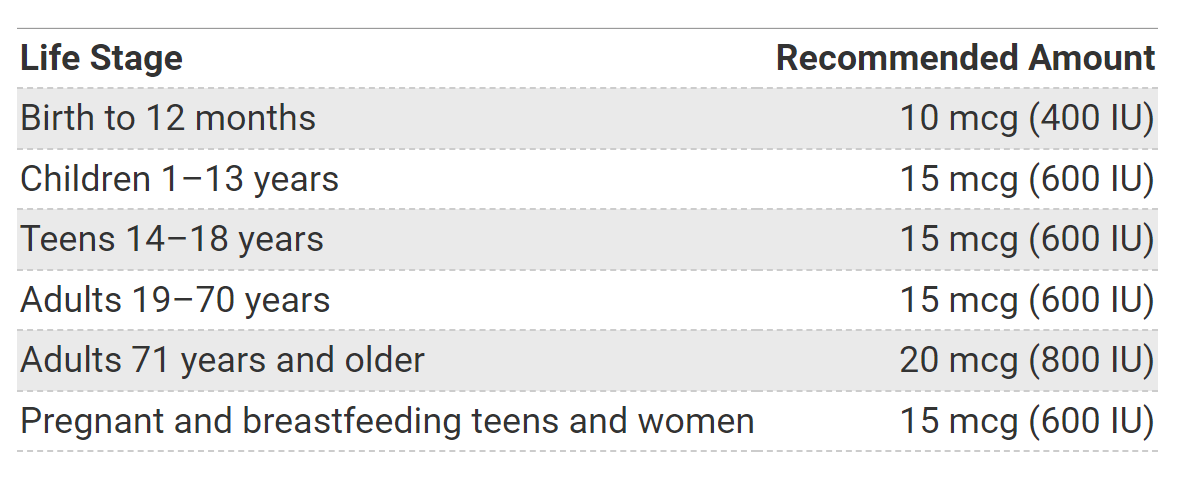02-Jun-2023
When it comes to our well-being, we often forget about the incredible benefits of vitamin D. This remarkable nutrient not only supports our bones but also plays a vital role in numerous bodily functions. From boosting our immune system to promoting our mental well-being, vitamin D is like a superpower for our health.

Importance of Vitamin D in Our Body
Vitamin D or Calciferol (the scientific term), often called the "sunshine vitamin", is a fat-soluble vitamin that our body produces when we bask in the sunlight. It serves several crucial functions, including
Building Strong Bones: This helps our body absorb calcium and phosphorus, two vital minerals for strong and healthy bones. Insufficient calciferol levels can lead to conditions like osteoporosis, a condition characterized by weak and brittle bones, increasing the risk of fractures. It is typically caused by a loss of bone density and is more common in older adults, and rickets, lead to weakened and soft bones, causing deformities and stunted growth, primarily affecting children.
Supporting Our Immune System: It plays a pivotal role in bolstering our immune system and helping us fight off infections, viruses, and diseases. It acts as a regulator for our immune cells and can reduce the risk of respiratory tract infections.
Boosting Our Mental Well-being: Research suggests that low vitamin D levels are linked to
Mental Health issues like depression and
seasonal affective disorder (SAD). By ensuring adequate vitamin intake, we can improve our mood and reduce the risk of these conditions
Recommended Daily Intake
The recommended daily intake of calciferol varies depending on factors such as age, sex, and certain health conditions. Below is a table sourced from the NIH (National Institutes of Health):

It's important to remember that these recommendations may vary based on individual needs, health conditions, and where we live. To find the right dosage for you, consult with a certified
dietician. who can offer personalized advice.
Nurturing Your Vitamin D Levels
For Vegetarians
Mushrooms: Some mushrooms, particularly those exposed to ultraviolet (UV) light, can naturally synthesize vitamin D2. Look for varieties such as shiitake, maitake, or portobello mushrooms.
Fortified Plant-Based Milk: Certain plant-based milk
alternatives like oat milk, almond milk, or soy milk are often fortified with calciferol. Be sure to review the labels to see fortified options.
Fortified Orange Juice: Some brands of orange juice are fortified with calciferol, offering a plant-based source of this nutrient.
Fortified Cereal: Certain breakfast cereals, particularly whole grain or fortified varieties, may contain added vitamin D. Check the nutrition labels for fortified options.
For Vegan
Fortified Plant-Based Milk Alternatives: Many brands of plant-based milk alternatives, such as soy milk, almond milk, or oat milk, fortify their products. Check the labels for fortified options to ensure you're getting calciferol from your plant-based milk.
Fortified Orange Juice: Some brands of orange juice, including certain fortified varieties, provide vitamin D.
Fortified Cereal and Granola: Some breakfast cereals and granola products are fortified with vitamin D. Check the nutrition labels for fortified options to find plant-based sources of this vitamin.
Fortified Plant-Based Yogurt: Certain plant-based yogurts fortified with
vitamin D may be available. Look for brands that specifically state they are fortified with calciferol.
Mushrooms Exposed to Sunlight: Similar to vegetarians, some mushrooms when exposed to sunlight or UV light, can naturally synthesize D2. Consider seeking out mushrooms like shiitake or maitake that have been exposed to sunlight.
For Non-Vegetarians
Fatty Fish: Fatty fish such as salmon, mackerel, sardines, trout, and tuna are excellent sources of vitamin D. Consuming these fish regularly can help meet your needs. Here's a list of dishes featuring fatty fish:
1. Grilled Salmon with Lemon
2. Sardine Pasta with Garlic and Olive Oil
3. Baked Trout with Almonds
Cod Liver Oil: Cod liver oil is a nutrient-rich oil extracted from the livers of cod fish. It is a potent source of these bone-building vitamins and can be consumed as a dietary supplement.
Egg Yolks: Egg yolks hold small amounts of vitamin D. Including whole eggs in the diet, rather than just egg whites, can contribute to calciferol intake.
Dairy Products: Some dairy products, such as milk, cheese, and yogurt, are often fortified with vitamin D.
Fortified Foods: Some other food products, including breakfast cereals, plant-based milk alternatives, and margarine, may be fortified with this vitamin. Look for fortified versions of these products.
Vitamin D Deficiency
Causes: Vitamin D deficiency can occur due to insufficient sun exposure, dark skin, obesity, aging, certain medical conditions, and limited dietary intake.
Symptoms: If you suspect a deficiency, common signs to watch out for include fatigue, frequent infections, bone and muscle pain, depression, hair loss, and impaired wound healing. If you suspect a
vitamin D deficiency , you can consult with an online dietitian from
metahealthcover. for guidance and advice.
Testing and Treatment: If you suspect a vitamin D deficiency, it's best to consult online dietician. They can perform a blood test to measure your vitamin D levels and recommend appropriate supplementation if necessary.
Conclusion
Vitamin D is a remarkable nutrient with numerous health benefits. It plays a crucial role in supporting our bones, strengthening our immune system, and promoting our mental well-being.
By embracing the power of calciferol, we can take a significant step toward achieving optimal health and happiness. Remember to enjoy moderate sun exposure, savor foods rich in these vitamins, consider supplements when necessary, and stay in touch with
online dieticians for personalized guidance.
FAQs
Are there any negative effects of Vitamin D?Taking excessively high doses for extended periods can
cause symptoms like excessive thirst, weight loss, nausea, poor appetite, vomiting, and kidney problems.
Can it help with SAD?Some studies have suggested that vitamin D might play a role in reducing the symptoms of SAD. If you suspect you have SAD, it's best to consult with a dietician for proper evaluation and treatment options.
Can Vitamin D improve fertility?Vitamin D receptors are present in reproductive tissues, suggesting a potential role in fertility. Some studies have indicated a correlation between vitamin D deficiency and decreased fertility in both men and women. If you're concerned about fertility, it's important to seek guidance from a fertility specialist or dietician in India.
Can Vitamin D benefit skin health?Adequate vitamin levels are believed to contribute to skin barrier function and may help in managing conditions like psoriasis, eczema, and acne. However, more research is needed to determine the precise mechanisms and effectiveness of skincare.
Can this Vitamin interact with medications?These supplements can interact with certain medications. For example, certain cholesterol-lowering drugs, seizure medications, and corticosteroids may interfere with this vitamin metabolism or absorption. If you're taking any medications, it's important to discuss them with your healthcare professional or pharmacist to ensure there are no potential interactions.
 Four Members |
Four Members | 100% Cashless |
100% Cashless | 1 Year Validity
1 Year Validity 



 Four Members |
Four Members | 100% Cashless |
100% Cashless | 1 Year Validity
1 Year Validity 


